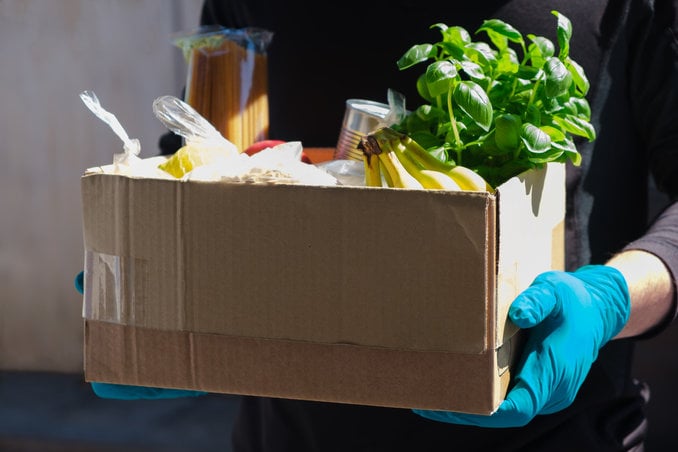
There’s no doubt that 2020 has so far been more newsworthy than usual. Although news about COVID-19 may be overshadowed by other hot topics, the reality is, the global pandemic continues to have an impact in the food processing industry, among other sectors. The food supply chain is an essential service and, in some cases, one in which it can be challenging to maintain social distancing. This has led to spikes in cases among workers, particularly in the meat-packing industry. Food banks are working hard to keep up with increased demand, consumers have expressed concern about the safety of food packaging, and some in the food industry are seeing the pandemic as an opportunity for long-term improvement.
Food Exports Affected by Coronavirus
A recent COVID-19 outbreak in a meat-packing plant in Arkansas has prompted Chinese officials to suspend imports of food produced in that facility. Despite the fact that there is no evidence that the virus spreads through food, the Chinese government appears to be approaching this virus with caution when it comes to food imports. This attitude is in keeping with the previous five-year ban on poultry imports from the U.S., which was lifted several months ago in November 2019.
Food Banks Save Lives but Struggle with Infection
Food banks throughout the country have been serving more people than ever before amid high unemployment rates. In Fort Worth, thousands of pounds of food were distributed with the help of the Texas Air National Guard at a large arena and at three other mobile pantry sites. In San Antonio at a food bank that serves 120,000 people per week, five employees tested positive for COVID-19 despite efforts to prevent the spread of the virus. Volunteers continue to distribute food even with the knowledge of the positive cases.
These are just two examples of the types of heartwarming stories and challenges that food banks across the country are facing in the effort to keep families fed.
FDA and USDA Confirm Safety of Food Packaging
In an effort to ease restrictions around food exports and alleviate consumer concerns, the FDA and USDA released a joint statement declaring, “There is no evidence that people can contract COVID-19 from food or from food packaging. The U.S. food safety system, overseen by our agencies, is the global leader in ensuring the safety of our food products, including product for export.”
This statement should prove reassuring to the 66 percent of Americans who are concerned about contracting the virus through food packaging, according to a G&S Business Communications poll. The survey also indicated that 65 percent of people believe that “research indicating food and packaging are unlikely to spread the coronavirus would prove reassuring.” Although consumers might continue to clean their food products with disinfectant (44 percent of respondents said they do this), it’s clear that the food packaging supply chain is also under increased scrutiny.
Opportunity for Positive Change
The repercussions of a global pandemic have brought many broken systems to light, not the least of which is the food supply chain. In the U.S. the supply chain has proven to be resilient, but it has highlighted some of the shortcomings that could be corrected. With meat processing facilities proving to be hot spots for the virus, plant closures potentially affected availability of meat to consumers. The industry is almost back to full capacity after facilities have reopened, but the situation brought to the forefront the need to diversify the supply chain.
In Africa, the recovery phase of the global pandemic is an opportunity to improve a food system that was already struggling to keep people fed. Rather than going back to business as usual, this is a chance to redesign the food system by focusing on crops that provide nutritional value, developing complementary businesses in agricultural areas, and implementing more environmentally friendly practices. This is also an opportunity to take advantage of heightened awareness of hygiene and sanitation to implement best practices and create more rigid protocols in food processing facilities around the world.
How Decon7 Can Help
The need for a food supply chain is not going to change, but what can change is the methods companies use to sanitize facilities and the frequency with which they do it. If you need help bolstering your facility sanitation plan, get in touch with the professionals at Decon7. To stay proactive, read The Busy FSQA Manager’s Guide to Proactive Plant Sanitation to learn more about how to cost-effectively and efficiently prevent bacterial contamination in your facility.
Ask us about coronavirus and how D7 has been approved for use against SARS-CoV-2. You can also download the Decon7 Product Guide to see what types of application systems could be incorporated into your facility.
